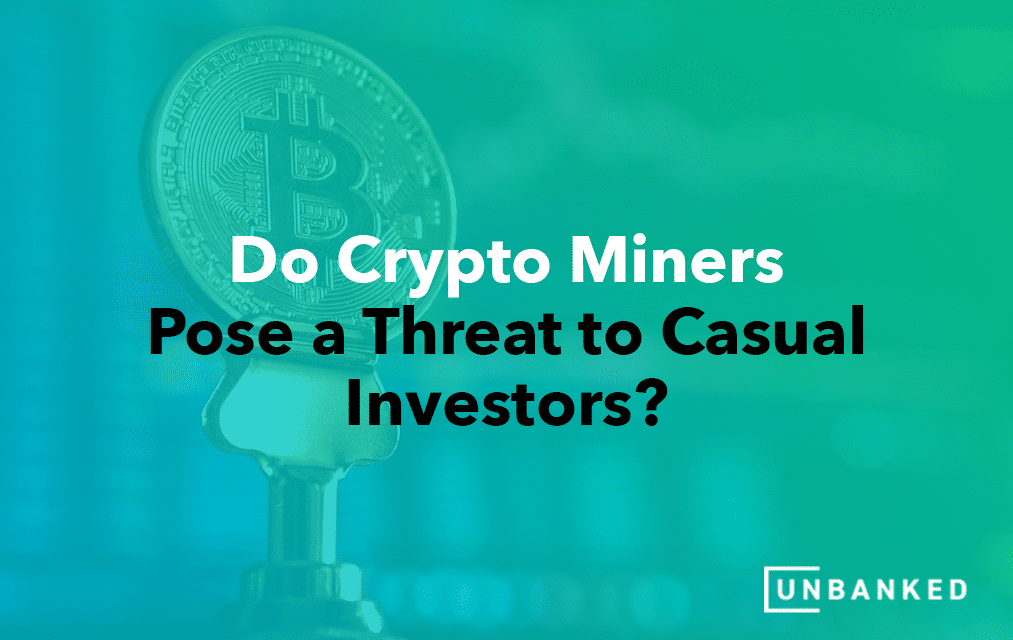Cryptocurrencies have become the talk of the world. With the proliferation of cryptocurrencies and the expansion of the crypto market, everyone wants to get a taste of crypto. Cryptocurrencies can usually be gained either by directly mining or investing in crypto exchanges. Cryptocurrency mining is the process by which cryptocurrency comes into circulation. Miners verify the legitimacy of a cryptocurrency transaction. Mining is a complicated process that uses sophisticated mining hardware to solve complex computational mathematical problems. Regardless, mining is still appealing to crypto enthusiasts because mining new cryptocurrencies reward the miner in crypto tokens for their effort. For example, the rewards of bitcoin mining were 50 bitcoins when it was discovered in 2009. It halves every year, which means the current reward of bitcoin mining is 6.25 bitcoins. Out of 21 million bitcoins, 18.82 million have already been discovered by crypto miners. A large number of people prefer investing in cryptocurrencies rather than mining which requires more effort and costly equipment. One can invest in cryptocurrencies through various crypto exchanges and crypto wallets available online. There has been a rise in the number of crypto investors this year because of cryptocurrency prices. Investors in cryptocurrencies believe that their value will increase over time, giving them considerable profit.
It should be remembered that several cryptocurrencies like Bitcoin are finite in number. This means that there will come a time when all the Bitcoins have been mined, and there will be no new Bitcoins to be mined. At the rate miners are going right now, all 21 million Bitcoins will be mined by 2140. And after that, miners will have to be paid in fees to maintain the integrity of the Bitcoin network and verify the transactions taking place over that network. This might have several repercussions, including a decrease in popularity and value of these finite cryptocurrencies, an additional burden on investors and crypto exchanges dealing with such currencies, or the downright fall of these digital currencies. This article will discuss how reckless crypto miners are posing a threat to crypto investors and, in general, the future of cryptocurrencies.
Downfall of cryptocurrencies
The impact of crypto mining on the environment and climate change is becoming too precarious to ignore. In some regions, electricity consumption for crypto mining purposes is more than the electricity consumption in certain nations. A recent analysis by Cambridge Bitcoin Consumption Index suggests that bitcoin mining consumes more power than many European nations like Finland and Belgium. In June 2021, Senator Elizabeth Warren took on social media to explain the climate impact of certain cryptocurrencies. She also suggested a crackdown on environmentally wasteful cryptocurrencies. Even high-powered billionaires like Bill Gates and Elon Musk have criticized the energy crypto mining activities consume. It is, therefore, unclear how valuable cryptocurrencies will be if it leaves a large carbon footprint. With the rising environmental awareness and steps taken to meet the sustainable development goals, several countries are imposing crackdowns on crypto miners. The most recent one was done by the Chinese government, which shut down most of its miners because of the environmental costs of mining operations.
ESG (Environmental, Social, and Governance) investing is increasingly gaining more and more momentum, and investors are looking at sustainable investment options. The net asset flow of such ESG investments was around $15.1 billion. The push to ESG investing is both regulatory and voluntary. Institutional investors are bound by ESG rules and requirements to clean up their investment portfolio. With cryptocurrencies like Bitcoin still consuming a large amount of energy and miners using renewable energy sources recklessly, a large presence of Bitcoin in the investment portfolio might fall under non-compliance. This might ultimately lead to the downfall of Bitcoin as a valuable asset. If miners continue with their Bitcoin mining operations costing large amounts of energy, Bitcoin investors might have to look for alternative forms of investments. This will lead to a reduction in options for crypto investors. The only viable solution to this threat is a push to decarbonize crypto mining and move to greener alternatives. Cryptocurrencies will only hold value if they are compliant with environmental, social, and governmental factors. If the regulations become more stringent, they will ultimately be shunned, as was the case in China.
Malicious crypto miners
As discussed earlier, over 18 million Bitcoins have already been discovered, and the rewards of Bitcoin mining go down every four years. This means for Bitcoin mining to remain profitable, miners have to reduce operational costs of mining. Several Bitcoin miners offset these costs with the help of malware. This process is called crypto-jacking. Crypto-jacking is profitable as it provides high returns at low risk. Crypto jackers install malicious scripts on computers that run cryptocurrency mining operations disguised as legitimate programs. This is usually done through phishing emails and messages sent on the victim’s computer. In 2018, hackers targeted over 400,000 computers to install Bitcoin mining malware. This was mostly done through social media platforms like Facebook, YouTube, and messenger that infected the victim’s computers and even smartphones to mine cryptocurrencies.
The people who are interested in cryptocurrency or are already investing in them are the most vulnerable to this kind of mining malware. With the help of crypto-jacking malware, the attackers can access the funds from the wallets of crypto investors. Most of the time, investors don’t even know they are being attacked because it is not easily identifiable. After all, there might be no visible signs except the reduction in the operational speed of their computers.
Reckless and malicious miners pose both direct and indirect threats to the investors and the cryptocurrency ecosystem. The only solution to this is a tighter regulatory framework that controls the non-compliant activities of crypto miners and offers a security net to the investors. Since these miners control hard forks that influence the prices of cryptocurrencies, investors often rely on their mercy. To know more about crypto mining and investing, visit our blog today!





